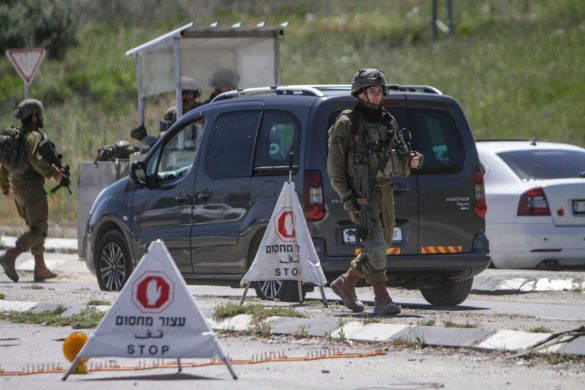Siden december 2013 er hundredetusinder flygtet fra deres hjem i Anbar-provinsen. Alene i de seneste dage har de hårde kampe drevet 35.000 på flugt. Røde Kors advarer om alvorlig mangel på mad, vand og medicin.
GENEVE/BAGHDAD, 26. maj 2014 (ICRC): The International Committee of the Red Cross (ICRC) is profoundly disturbed by the ongoing fighting in Anbar province, particularly in Fallujah, between the Iraqi security forces and armed groups.
The fighting has severely disrupted the flow of food, water, fuel, medical and other supplies to civilians in the city.
Hundreds of thousands of civilians are estimated to have fled their homes in Anbar province since hostilities erupted in December 2013.
Civile fanget i byen
“In the past few days alone, more than 35,000 people have been reportedly displaced. A large number of civilians are still trapped inside the city by fighting,” said Patrick Youssef, head of the ICRC delegation in Iraq, who recently went to the area to assess the humanitarian situation.
“Supplies of water, food, and other basic necessities are severely limited,” he added. “Access to health care in Fallujah has been dramatically interrupted, and medical supplies are running short. There are few qualified medical personnel left in the city to tend to the wounded and the sick, and ambulances are being delayed or prevented from moving at all because of the fighting.”
The ICRC is reminding all parties involved in the hostilities of their obligation to spare the civilian population and to allow humanitarian aid to reach those who need it most.
“Everyone who is wounded or sick must be granted prompt and safe access to health care,” said Mr Youssef. “Ambulances and health facilities must not be targeted. Medical personnel must be allowed to carry out their activities unhindered.”
Røde Kors klar med forsyninger
Although ICRC staff succeeded in entering Fallujah in January and provided food and other items for some 3,000 people in the city, the ongoing fighting has prevented the organization from returning to bring aid to thousands of others in need of immediate and urgent support.
“We are ready to bring relief to the people in the city as soon as the situation allows,” said Mr Youssef.
Meanwhile, the ICRC working together with the local communities, the Iraqi Red Crescent, the local councils and the central government continues to assist people who fled Al Anbar for other provinces.
So far, it has distributed food and other essentials to more than 100,000 displaced people in Al Anbar, Baghdad, Diyala, Karbala, Najaf, Babel, Ninawa, Al Qadissiya, and Salah al-Din.
ICRC staff have also repaired water networks serving a total of more than 150,000 people, including the displaced and their host communities. In addition, the organization has completed the repair of the primary health-care centre in Ramadi, which had been damaged in clashes.















